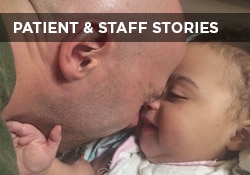This website uses cookies so that we can provide you with the best user experience possible. Cookie information is stored in your browser and performs functions such as recognising you when you return to our website and helping our team to understand which sections of the website you find most interesting and useful.

Susan E. Mazer, Ph.D. Blog
Thoughts and ideas on healthcare
Hi, and welcome to my blog! I'm Susan E. Mazer -- a knowledge expert and thought leader on how the environment of care impacts the patient experience. Topics I write about include safety, satisfaction, hospital noise, nursing, care at the bedside, and much more.
Why the Work Environment of Nurses Matters
October 27, 2017
 Having just returned from the ANCC Magnet conference, I am again aware of how the majority of healthcare consumers have very little idea how nurses think, what they do to protect their patients, how they find places of vulnerability where patients are at risk, and how critical their ongoing research is to community and family health.
Having just returned from the ANCC Magnet conference, I am again aware of how the majority of healthcare consumers have very little idea how nurses think, what they do to protect their patients, how they find places of vulnerability where patients are at risk, and how critical their ongoing research is to community and family health.
The challenges that each nurse takes on each day are complex. Patient safety and nursing safety are intertwined and rely on an environment that is itself intentionally designed for their safety.
How nurses hear each other and their patients are informed by the ambient noise level and other irrelevant but annoying distractions.
How patients experience their condition and project hope or fear is informed by the very room in which they find themselves.
Nurses think beyond the immediate status of patients to the impact of their treatment and the ways in which patients will have to adapt in order to continue recovery at home.
Centered Around the Patient Experience
It’s astounding that nurses are still assumed to be secondary to physicians. This is a mistake on so many levels.
Since Florence Nightingale, nursing has been centered on the patient experience as it translated into comfort, health restoration, and long-term quality of life.
Nightingale wrote, “While the surgeon may save the patient’s life, it is the nurse that shows that patient how to live.”
It is here that nursing takes on so much more than immediate clinical need, while still addressing medical issues.
Everything in the Environment Matters
The work environment of nurses is the patient environment for patients. Either it is healing or not. And, if it is not healing, what is it doing?
Studies on the impact of the physical environment on outcomes show that everything in the environment merges with the patient condition. Noise distracts. Lighting that is glaring agitates. Clutter is a hazard. Cleanliness is a bottom line determinant for infection risk.
The patient-nurse relationship is best supported in an environment that serves both the patient and caregiver.
Here are four questions to ask about the patient room environment:
- What do you see and hear?
- Is the room itself comforting? Safe?
- Is the television dominant? If so, what is it doing to the condition and status of the patient/family?
- Would you want your mother, daughter, wife, husband, etc., to spend 24-hours in the room as it is at this moment?
Tending to the patient room is tending to the patient. And also to the nurse.
P.S. If you like this post, please do me a favor and share on LinkedIn, Twitter, Facebook, etc. Also to get automatic notices when a new post is published, please subscribe. No spam – just great content. Thanks!










